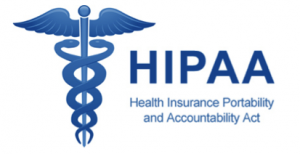HIPAA, or the Health Insurance Portability and Accountability Act, is a law in the United States that was created to protect the privacy and security of individuals’ health information. It was signed into law in 1996 and has been amended several times since then to keep up with changes in technology and healthcare practices.

HIPAA applies to “covered entities,” which includes healthcare providers, health plans, and healthcare clearinghouses, as well as their business associates. These covered entities are required to follow certain rules and regulations when it comes to the use and disclosure of individuals’ protected health information, or PHI.
Keep Personal Information Safe
So, what is PHI? PHI includes any information that can be used to identify an individual’s health status, such as medical diagnoses, treatment plans, test results, and other medical information. It also includes demographic information such as a person’s name, address, and birthdate, if it is associated with their health information.
One of the main goals of HIPAA is to ensure that individuals have control over their own health information. This means that covered entities must obtain written permission from individuals before using or disclosing their PHI, with a few exceptions such as for treatment, payment, and healthcare operations.
Keep Your Health Information Private
HIPAA also requires covered entities to provide individuals with a notice of privacy practices, which explains how their health information may be used and disclosed, as well as their rights under the law. Individuals have the right to access their own PHI and to request that any errors be corrected. They can also file a complaint if they believe that their rights under HIPAA have been violated.
Another important aspect of HIPAA is its security rule, which requires covered entities to implement administrative, physical, and technical safeguards to protect the confidentiality, integrity, and availability of electronic PHI (ePHI). This includes measures such as password protection, encryption, and backup systems to prevent unauthorized access or disclosure of ePHI.
HIPAA also has implications for consumers in several ways. It can affect how health insurance is obtained, as well as how medical providers handle patient information. For example, telemedicine services must also comply with HIPAA regulations to ensure the privacy and security of patients’ health information.
More Paperwork
Medical providers aren’t always happy with HIPAA because it creates a lot of paperwork and holds them responsible for maintaining your privacy. They need written permission to share your medical and billing information with other doctors and even insurance companies. Most will ask you to update an information release form yearly. It’s one of those papers that you will be asked to sign.
HIPAA regulations require doctor’s offices and medical facilities to complete regular security audits. They need to make sure that your records and health information stay secure.
Another part of HIPAA is the standardizing of codes. Each medical diagnosis or procedure has been assigned a unique code from a table called ICD-10 (International Classification of Diseases 10th edition). It’s very complex as each code is specific to a disease, disorder, or condition. Most doctor’s offices need to have a billing specialist to determine the correct code, and incorrect codes can delay bill payments.
Overall, HIPAA is a complex law that can have a significant impact on the healthcare industry and individuals’ privacy rights. It is important for consumers to understand their rights under HIPAA and to be aware of how their healthcare information is being handled. By working together, healthcare providers and consumers can help to ensure that the privacy and security of healthcare information is protected under HIPAA.
